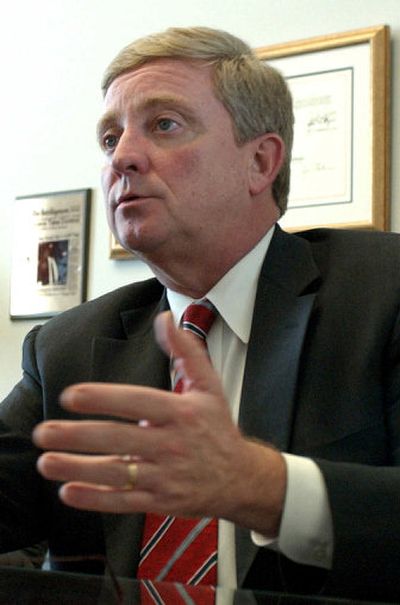Probe of ex-lobbyist heats up, yields names

WASHINGTON – The Justice Department’s wide-ranging investigation of former lobbyist Jack Abramoff has entered a highly active phase as prosecutors are beginning to move on evidence pointing to possible corruption in Congress and executive branch agencies, lawyers involved in the case said.
Prosecutors have already told one lawmaker, Rep. Robert Ney, R-Ohio, and his former chief of staff that they are preparing a possible bribery case against them, according to two sources knowledgeable about the matter who spoke on the condition of anonymity.
The 35 to 40 investigators and prosecutors on the Abramoff case are focused on at least half a dozen members of Congress, lawyers and others close to the probe said. The investigators are looking at payments made by Abramoff and his colleagues to the wives of some lawmakers and at actions taken by senior Hill aides, some of whom went to work for Abramoff at law firm Greenberg Traurig LLP, lawyers and others familiar with the probe said.
Former House Majority Leader Tom DeLay, now facing separate campaign finance charges in his home state of Texas, is one of the members under scrutiny, the sources said. Others include Sen. Conrad Burns, R-Mont., Rep. John Doolittle, R-Calif., and several other members of Congress involved with Indian affairs, one of Abramoff’s key areas of interest.
Prosecutions and plea deals have become more likely, the lawyers said, now that Abramoff’s former partner – public relations executive Michael Scanlon – has agreed to plead guilty to conspiracy and to testify about gifts that he and his K Street colleagues showered on lawmakers, allegedly in exchange for official favors.
An attorney for DeLay, whose wife worked for a lobbying firm that received client referrals from Abramoff, said there was no connection between her work and congressional business. A spokesman for Doolittle, whose wife received payments from Abramoff’s lobbying firm, also said there was no connection with her husband’s position. Burns’ office has said his actions were consistent with his support for improving conditions for Indian tribes.
Ney is the congressman whose name has surfaced most prominently in the Abramoff investigation. His spokesman and attorney have said for weeks that Ney has not been told he is a target of the inquiry, even while acknowledging that his office has received a grand jury subpoena and that his activities were mentioned in Scanlon’s plea agreement.
However, the sources said that during the third week of October prosecutors told Ney and his former chief of staff, Neil Volz, that they were preparing a bribery case based in part on activities that occurred in October 2000. Abramoff and another business partner, Adam Kidan, were also told that they are targets in that case, the sources said.
The five-year statute of limitations for filing charges based on those events expired last month; the prosecutors sought and received a waiver of the deadline from all four men while they continue their investigation, the sources said. Prosecutors are often able to obtain such waivers by giving the targets a choice of being indicted right away or granting more time to see if information might surface that exonerates them.
The events in 2000 that interest investigators are connected to the purchase by Abramoff and Kidan of SunCruz Casinos, owner of a fleet of Florida gambling boats. Ney twice placed comments in the Congressional Record about SunCruz, first criticizing its former owner when Abramoff and Kidan were in difficult purchase negotiations, then, in October, praising Kidan’s new management.